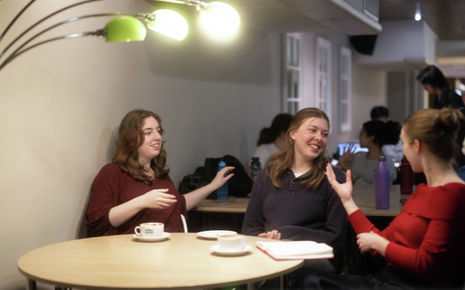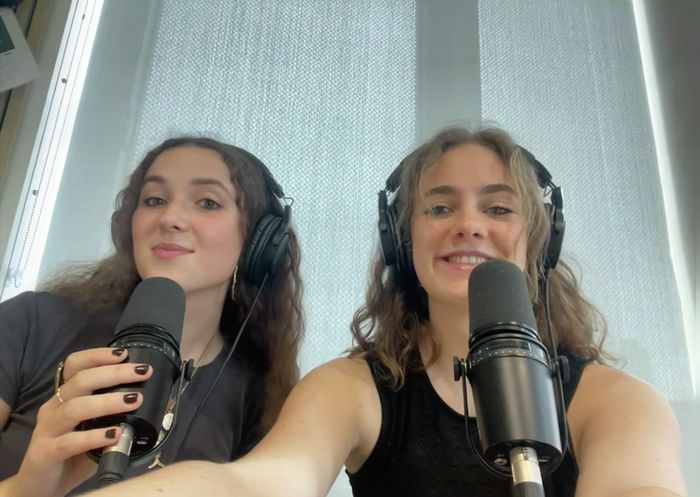In search of the Midlands (in Cambridge)
Harriet Crust sits down with the committee of the newly-established Midlands Society to talk about the importance of a regional identity

It was an ongoing joke between my Midlands-born friends at Cambridge and me that we should found a Midlands Society. As collective residents of “near Birmingham,” we lack the Northern credentials to join the Northern Society, and you could say (perhaps jokingly) that Cambridge itself is one big Southern Soc. Then, in the summer, it happened: a Midlands Society really did exist. Midlanders were finding each other in Cambridge, through the rallying cry of an introductory Instagram post.
On a quiet afternoon in Tit Hall café, I sat down with the committee of the newly established society to find out what it means to forge a collective regional identity. The president, Hollyann, from Burton-on-Trent, explains that the idea derived from a discussion with her college wife at a formal: it was “a meeting of people from the Midlands,” she smiles; “we set up the group chat in May Week, then found everybody over the summer”. Beside her at the table are the two welfare officers, Sam from Tipton and Scotia from Walsall, Lily-Grace, the social secretary (who, like myself, is from Wolverhampton), and Sophie the secretary, from Telford. Across the table from them is Rosie, their graphic designer – “our diplomatic Southerner,” Hollyann laughs – from Bristol. Treasurer Alice arrives later in the interview – a proud East Midlands advocate from Leicester.
“This was my first time meeting anyone else from the Midlands, particularly because I come from a hill college”
Scotia, a third year at Fitzwilliam, is clear about how significant the society is for her. “This was my first time meeting anyone else from the Midlands, particularly because I come from a hill college.” She had stopped telling people that she was from Walsall: “When I would tell people, they would think I was talking about Poland,” she notes in bemusement. The committee show genuine shock when I say that the first people I met on moving in were from Walsall, Solihull, and Birmingham; “I’ve met one person in my year from Kingswinford,” Sam offers. Lily-Grace’s experience was coloured by her place on the foundation year. “There was a big network of people from the Midlands. I don’t know what I would have done without that, though.”
The conversation moves on to regional accents. My own voice has been neutralised over years of conditioning that a Wolverhampton accent is undesirable for those who wish to “escape” the Midlands. Scotia remarks on how she is often complimented for her lack of accent; Sam compares it to having his accent “trained out of him”. A more insidious experience is recounted by a committee member who lived with Londoners in halls in first year, and who found the mocking of her accent almost incessant: “It was every time I went into the kitchen, in the end I went to the senior tutor about it, but not much happened.”
“It appears that within our political establishment, the comic refrain of “the Midlands don’t exist” is proving a reality on a national scale”
Our conversation makes it clear that we need to reframe the terms of the North-South divide to include the Midlands in the narrative. The West Midlands has the highest levels of child poverty in the UK, at 36%, 5% higher than the UK national average, and 13% higher than levels in the East (End Child Poverty, 2025). The constituency with the highest level of child poverty, at 62%, is Birmingham Ladywood.
Sam expresses utter indignation over the national response to the city’s bankruptcy: “its people are being left behind”. Levelling up funding is primarily channelled into the North, and deservingly so – regions needing investment should not be pitched against each other. Yet, large-scale projects targeting the Midlands are often futile and half-finished disasters (“I mean, look at HS2,” says Sam). It appears that within our political establishment, the comic refrain of “the Midlands don’t exist” is proving a reality on a national scale. Sam points out, half-smiling, that the show that the Midlands was mentioned on the most was Police Interceptors: this is how the narrative of the Midlands is constructed.
However, the last thing the Midlands needs is a student journalist compounding this narrative of misery. It couldn’t be further from the reality of the place, and as I sit around the table, I’m reminded why I still fiercely defend the city I was raised in. When I ask what the best part of the Midlands is, the words “diversity” and “multi-culturalism” resound; the region is defined by its profound sense of community – a collective, however much it is framed otherwise in national media.
As we depart from the café, I realise that I had never understood, until that point, quite how powerful a collective regional identity can be; I understand better the collective reassurance of those who “know each other from London”. For two hours on a cold Wednesday afternoon in central Cambridge, it felt a little like being at home again.
 News / Colleges charge different rents for the same Castle Street accommodation2 March 2026
News / Colleges charge different rents for the same Castle Street accommodation2 March 2026 News / King’s hosts open iftar for Ramadan3 March 2026
News / King’s hosts open iftar for Ramadan3 March 2026 Theatre / Lunatics and leisure centres 4 March 2026
Theatre / Lunatics and leisure centres 4 March 2026 News / Angela Merkel among Cambridge honorary degree nominees27 February 2026
News / Angela Merkel among Cambridge honorary degree nominees27 February 2026 News / News in Brief: waterworks, wine woes, and workplace wins 1 March 2026
News / News in Brief: waterworks, wine woes, and workplace wins 1 March 2026








